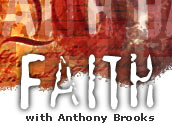



 Church and State Collide in Kentucky Church and State Collide in Kentucky
Opponents say this is a bad idea, even a dangerous one that can
promote intolerance. They say the case of Alicia Pedreira versus
Kentucky Baptist Homes for Children shows what happens when church
and state collide. Alicia Pedreira lives in a working class neighborhood of one story wood framed houses in Louisville. She has high cheekbones, and a compact, muscular body, sculpted by weight lifting and karate. In fact she's a brown-belt and calls herself a fighter. In 1998 she was interviewed for a job at the Kentucky Baptist Home for Children, which has provided counseling and foster care for children since just after the Civil War. Her first interview went well, but Pedreira is a lesbian, and she wondered if she really belonged in a conservative Southern Baptist organization. Pedreira said that in her second interview, she told her prospective employers she was a lesbian."I said if that was a problem, don't hire me, I have a job. I even said I don't want to be fired six months from now." Pedreira says she was told to be discreet. "I'm a therapist, I don't usually talk about my private life. I thought, okay, I can work here." It was, in effect, a "don't ask-don't tell" policy. Kentucky Baptist hired Pedreira to counsel troubled teenage boys, and for six months all went well.
She flips through a large, red notebook, full of documents that chronicle her experience, including her first evaluation - where she received excellent feedback from her supervisor. The red notebook also contains a copy of a picture that changed her life. A photographer snapped the photo of Pedreira and her partner after an AIDS walk in 1998. In the picture, the two women lean against each other affectionately. Pedreira wears a tee shirt with a map of the "Isle of Lesbos." The trouble began when the photographer entered the photo in a contest at the Kentucky State Fair, and thousands of people saw it, including her co-workers.
She said she didn't think anything of it until someone at work mentioned the shirt she was wearing. Pedreira says, "At that point I went, oh no, and at that moment I pretty much thought that I was going to be fired." She was right. A week later the President of Kentucky Baptist
Homes asked her to resign. A letter explained that her "homosexual
lifestyle is contrary to the Home's core values." It's about as stark an example of it as you can possibly find. One of the reasons that we brought this case was because to us it seemed that this was a preview. This is what happens when you let a religious organization provide social services and you don't put restrictions on it. Officials at Kentucky Baptist Homes declined several requests for interviews. However, its website says Pedreira was dismissed not on religious grounds, but on therapeutic ones. In public statements since firing Pedreira, Kentucky Baptist Homes President Bill Smithwick has said that he's against "promoting homosexual behavior." "Such behavior could result in emotional and life-threatening physical consequences. We don't think we need to be promoting it by saying, 'Yes, Alicia is an employee of ours, and she's a homosexual-- that must be okay…' We're not saying that that's okay, that's not okay." That's a good position for Smithwick to take because there's no federal law that bans discrimination against homosexuals, and there is no such statute in Kentucky. This case could set an important precedent. Proponents of Charitable Choice say that allowing faith-based groups to hire in a manner consistent with their beliefs, in short, to do what Kentucky Baptist Homes did, is essential and even fair. They point to other ideological organizations. For example, environmental groups wouldn't hire anti-environmentalists. They contend that faith based groups should likewise be free to hire people whose views are consistent with theirs. This case has divided Kentucky Baptists. Paul Simmons, a liberal Baptist minister, joined the lawsuit as a co-plaintiff. He says in firing Pedreira, Kentucky Baptist Homes used public funds to push a narrow religious-based social agenda. Simmons also finds it objectionable that President Bush has set up a White House office to fund faith-based initiatives: The very fact that there is an office in the West Wing of the White House that deals with government initiatives towards faith-based groups is an open assault on the first amendment. This man took an oath to uphold the Constitution, he either does not understand it, or else he is cynical about that oath. Not surprisingly conservative Baptists have a different view,
such as Albert Mohler, President of the Southern Baptist Theological
Seminary: In so far as the Kentucky Baptist Homes for Children are legitimately Baptist and reflect accountability to Baptist churches, the Homes had no choice but to take the action. There can be no doubt that Baptist conviction understands that homosexuality is biblically defined as sinful and as certainly a lifestyle that one would not present to children, especially in the context of a children's home. Interestingly, some conservative theologians, including Mohler and such prominent Evangelicals as Jerry Falwell and Pat Robertson, agree with liberals about some of the dangers of commingling church and state. Mohler says when churches take government money, they become agents of the secular state, which could dilute their religious message. He believes the government might also insist on auditing their books, or compel them to hire gays.
The best way for Caesar to co-opt the church would be to franchise it, and I'm afraid that this is in a subtle way what is happening. No I do not believe that that is the ambition of the Bush administration. As a matter of fact, I applaud the Bush administration's understanding that Christian churches and other institutions are probably reaching more persons... than any governmental structure or secular alternative. |









